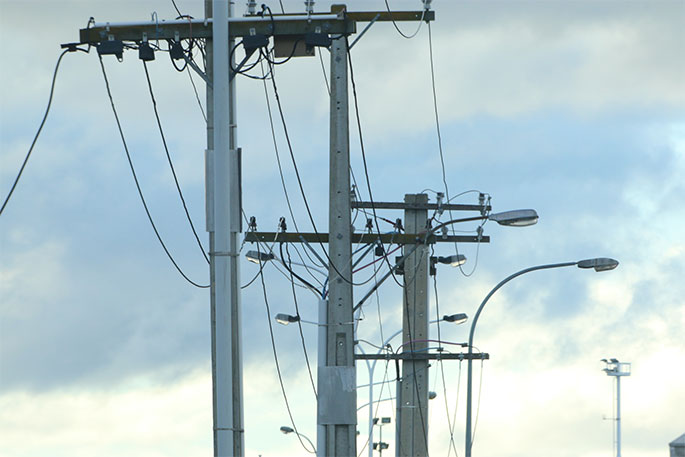Just over a month since the government scrapped low-use power plans, charities say they are being inundated with people struggling to power their electricity bills.
It is another sting in the tail for people already struggling with the rising cost of living.
Ever since the news power prices were going up, Consumer New Zealand's phones have been ringing off the hook with frustrated customers.
"I'm fully expecting it to keep climbing to the outer territory," says one person.
"Absolutely I would say probably $6-7 a week, we've just gotta do what we gotta do," says another.
The 30-cent fixed daily charge will double, adding an extra $110 a year to the average power bill.
The manager of Consumer NZ's energy price comparison website Powerswitch Paul Fuge says that increase will be catastrophic over the next five years.
"So that means you're going from 30 cents a day now to $1.80 in five years time, which is an extra $657 - $700 from what you've been used to."
Fuge says it's not an even playing field with retailers.
"Some retailers are going to the full maximum and increasing 100 per cent, some retailers are only increasing by 50 per cent, and some aren't increasing... just because they're allowed to phase the low fixed charge out doesn't mean they have to phase it out."
That is why it has become even more important to shop around for our power.
Elderly people are largely impacted. Central representative for Grey Power Lew Findlay has seen that first hand.
"Everything is going up for them and their super certainly hasn't gone up anywhere near that, up to $150 on rates a fortnight and your food is going up 6-7 per cent and petrol's gone through the roof."
Staring down the colder winter months, older people may put their health at risk whilst facing significantly higher power bills, he said.
"You get a power bill over $100 it takes a fair whack on your super, they don't turn their heaters on, they'd rather wrap up in the blanket, they'll turn the heaters off, you know, and and go to bed early just so they can save power."
But the issue is even more widespread.
"There's a lot more people than that, just different family situations people that are coming in with two incomes and more people with a home as well, yeah, normally that wasn't very common, but it's becoming more common," says Budget Advisor Fiona Govender.
At the Pakuranga and Howick Budgeting Service in Auckland, over the last two years they had seen more and more people asking for help.
While the winter energy payment is helpful, for those that qualify, it barely makes a dent in the huge jump in prices, Govender said.
Sustainability Trust fair energy manager Phil Squire disagrees with the government's decision.
He said it favoured retailers and those trying to be more energy conscious or who were struggling financially lose out.
"A lot of it definitely came from retailers and lines companies and we work for low income households and we weren't consulted at all on the change."
He's calling for retailers to make some changes.
"Either remove fixed prices altogether, or set a regulated standard fixed charge."
The key message in the current climate is to do your research and shop around using free services like Powerswitch which tracks pricing plans.



2 comments
Line charges
Posted on 05-05-2022 13:07 | By david mends
line charges should be capped to 15% of the total bill
Pensioners.
Posted on 06-05-2022 13:03 | By morepork
Speaking as one, I can confirm that these charges will make a difference for me in what I can afford and savings will have to be made elsewhere... (cut out wife's beer...). Seriously, I can't see the justification for it. David Mends suggestion is a good one, but it won't work if they just raise the rest of the bill to compensate themselves. Given that Power companies have been riding a gravy train for years without making proper re-investment into reticulation, maybe there SHOULD be some Government capping of profits. Look at the number of times we see communities without power because there is no alternative way to route power to them as the network is inadequate. Line workers do a great job, but the solution is in a better network, and that requires investment that is simply not made at present.
Leave a Comment
You must be logged in to make a comment.